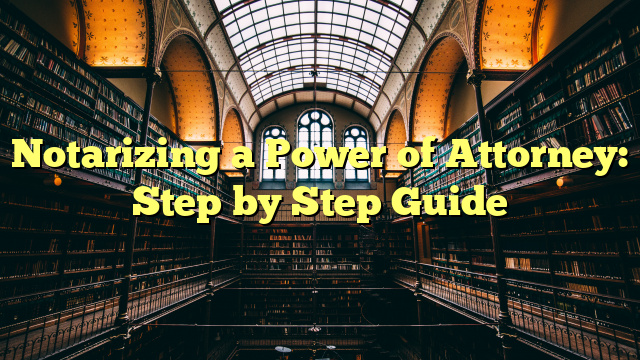Table of Contents
Document
A power of attorney (POA) is a document that gives another person (the “agent”) the legal authority to act on your behalf. The agent can make legal, financial, and other decisions for you if you become incapacitated or are otherwise unable to act for yourself. Depending on the type of POA, the agent may also be able to act on your behalf without you being incapacitated. It is important to understand the scope of the POA and to know the person to whom you are granting the power. You can create a POA using an online service, or in most cases, an attorney.
Notary
Notarizing a POA is an important step in the process of granting an agent the power to act on your behalf. Notarization helps to ensure that the document is authentic and that the signer is who they claim to be. When you notarize a document, you are declaring that the document has been properly signed and attested and that the signer has been put on notice of the contents and implications of the document. It is important to note that a POA is not valid until it is notarized.
Execution
Once the POA has been notarized, it must be executed. This means that the document must be signed by the principal (the person granting the power) and the agent (the person receiving the power). In some states, two witnesses must also be present to witness the signing of the POA and certify that the principal was of sound mind and not under any duress or undue influence when signing the document. The witnesses must also be available to testify, if necessary, to the validity of the document.
California
In California, a POA must be signed by the principal, notarized, and signed by two witnesses in order to be valid. The witnesses must be present when the POA is signed and must be at least 18 years old. The witnesses must also sign a separate form affirming that they saw the principal sign the POA and that the principal was of sound mind and not under any duress or undue influence at the time of signing.
Locations
Where can I get a power of attorney notarized near me? The best way to find a notary public in your area is to search online. There are a variety of websites that list notary services, including the National Notary Association, Notary Near Me, and Notarize. You can also call your local bank or law office to inquire about notary services.
It is important to note that not all states allow remote or online notarization. In California, remote notarization is allowed, and online services like Notarize can be used to notarize documents. However, it is important to check with your state laws to ensure that the notarization is valid in your jurisdiction.


The guide provided interesting insight into notarizing a Power of Attorney. I think it’s also important to research State laws to ensure the document meets all legal requirements. All the best in this process.
Without a notary, a POA may not be officially recognized. I uphold the belief that a POA should still remain valid without the signature of a notary.